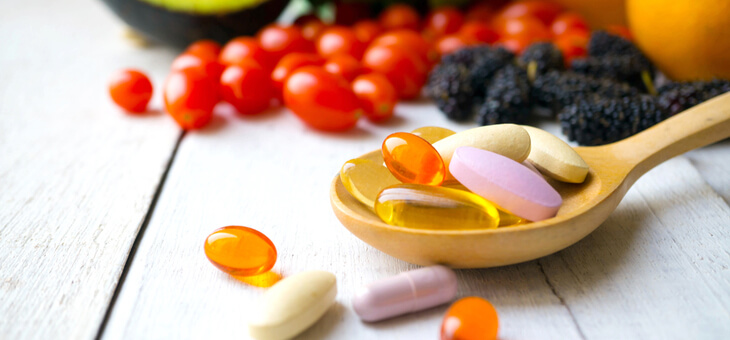At my local supermarket, in aisle 1, you’ll find vitamins on one side, and baby needs such as formula, food and nappies on the other. Like most supermarket aisles, this one clearly marks its contents, in this case a sign that reads “Vitamin” on one line, and “Baby” on the next.
Each time I push a trolley down that aisle, I can’t help but read the sign as a single, excited exclamation: “Vitamins, baby!” And why not? Vitamins are a good thing, aren’t they?
Indeed, they are, but does that mean we should be filling up our trolleys as we push them down aisle 1?
The answer, in most cases, is a simple, no. And the science backs that up.
Over many years, research aimed at studying the potential benefits of taking vitamin supplements has consistently arrived at the same conclusion – vitamin supplements usually provide a benefit only when there is a deficiency, and the vast majority of those deficiencies are avoidable simply by eating a healthy diet.
Read: Vitamins and minerals aren’t risk-free: six ways they can cause harm
Why then, are long aisles of ‘mega’ pharmacies and supermarkets lined with an impressive array of small vials offering you a boost to your physical and mental health? Because good display marketing sells products. And those products do not have to be healthy. One only has to look down from the end of a well-presented and well-stocked aisle of potato chips or soft drinks to understand that.
It’s not that taking regular courses of multivitamins is necessarily a bad thing. If you follow the dosage advice, the consumption of these vitamins is unlikely to cause harm. On the other hand, if you have a healthy, varied diet, those vitamins are just as unlikely to do you any good.
Read: Five vitamins from real foods
There are, of course, exceptions here, as there are to most rules. Several years ago, I was diagnosed with glaucoma, a disease in which high eye pressure can cause gradual vision loss. As well as treating this through laser surgery and a prescription of eye drops, my ophthalmologist told me there is scientific evidence that suggests higher levels of B3 may help stop the condition worsening.
And a recent paper published in the British Medical Journal found strong evidence of a causal link between taking vitamin D supplements and a lower risk of autoimmune disease in older adults.
The Australian government’s Health Direct website also outlines the advantages of vitamin supplements for pregnant women or vegans, advising pregnant women to take folic acid and possibly vitamin D, and vegans a B12 supplement, and possibly also supplements containing vitamin D, omega-3 fatty acids and iron.
Read: Five vitamins that can boost your mood
There’s no doubt that vitamin supplements have their place, but that place is best discussed individually in consultation with your GP.
However, when it comes to your general wellbeing, you’re far more likely to reap long-term benefits by heading down to your local fruit and veg shop than by buying a colourful array of small jars that feature the capital letters of the first half of the alphabet.
If you enjoy our content, don’t keep it to yourself. Share our free eNews with your friends and encourage them to sign up.

